ALL NEW FOUNDATIONAL INTELLIGENCE MODEL (FICE) - Get your Insights Report Here
Alex Luna • February 2nd, 2024.
A couple of weeks ago, I had the pleasure of attending the World Economic Forum Annual Meeting at Davos. The theme of the year is “Rebuilding Trust,” which comes at a time of extreme conflict and global instability. As Climate Change exacerbates inequalities around access and affordability of food for consumers and impacts farmers’ livelihoods, the importance of trust in food systems becomes even more paramount. Therefore, climate adaptation emerges as a crucial lever for rebuilding trust.
Reflecting on our journey over the past six years, it is remarkable to witness how much greater the focus on climate adaptation has become. Since I co-founded ClimateAi, we’ve recognized its role in bettering people’s lives and livelihoods and one of the biggest market opportunities for businesses. Now, companies are realizing that for every dollar invested, they generate a ROI of 10-15 fold.
As climate adaptation officially entered Davos’ agenda for the first time, I am excited to see how our conversations and renewed hope shape the year ahead in sustainability.
WEF dialogues on climate adaptation
For the first time, there were two panels on Climate Adaptation. Two panels delved into the role of technology in driving climate adaptation. Hiroaki Kitano, CEO at SonyAI, highlighted that open source data has a big potential for sustainability. Still, its true value lies from processing and translating it into insights, which enable companies and governments to take action.
Open Forum: A Primer on AI
This year, AI skyrocketed into the forefront of conversations at Davos. I had the opportunity to contribute to an Open Forum panel along thought leaders will.i.am (Artist and Founder of the i.am Angel Foundation), Alexandra Reeve Givens (CEO at Center for Democracy & Technology) and Axel Oster, where we delved into solutions in art, governance, education and climate.
Amidst a 30% global yield reduction driven by climate change, AI emerges as an accelerator and amplifier for climate solutions that drive lives and livelihoods. For farmers, this implies access to more resilient seeds, which are launched into the market faster and cheaper.
By using AI enabled solutions, companies can find the right locations for trials in 70% of the original timeframe, with a cost reduction of 20%.
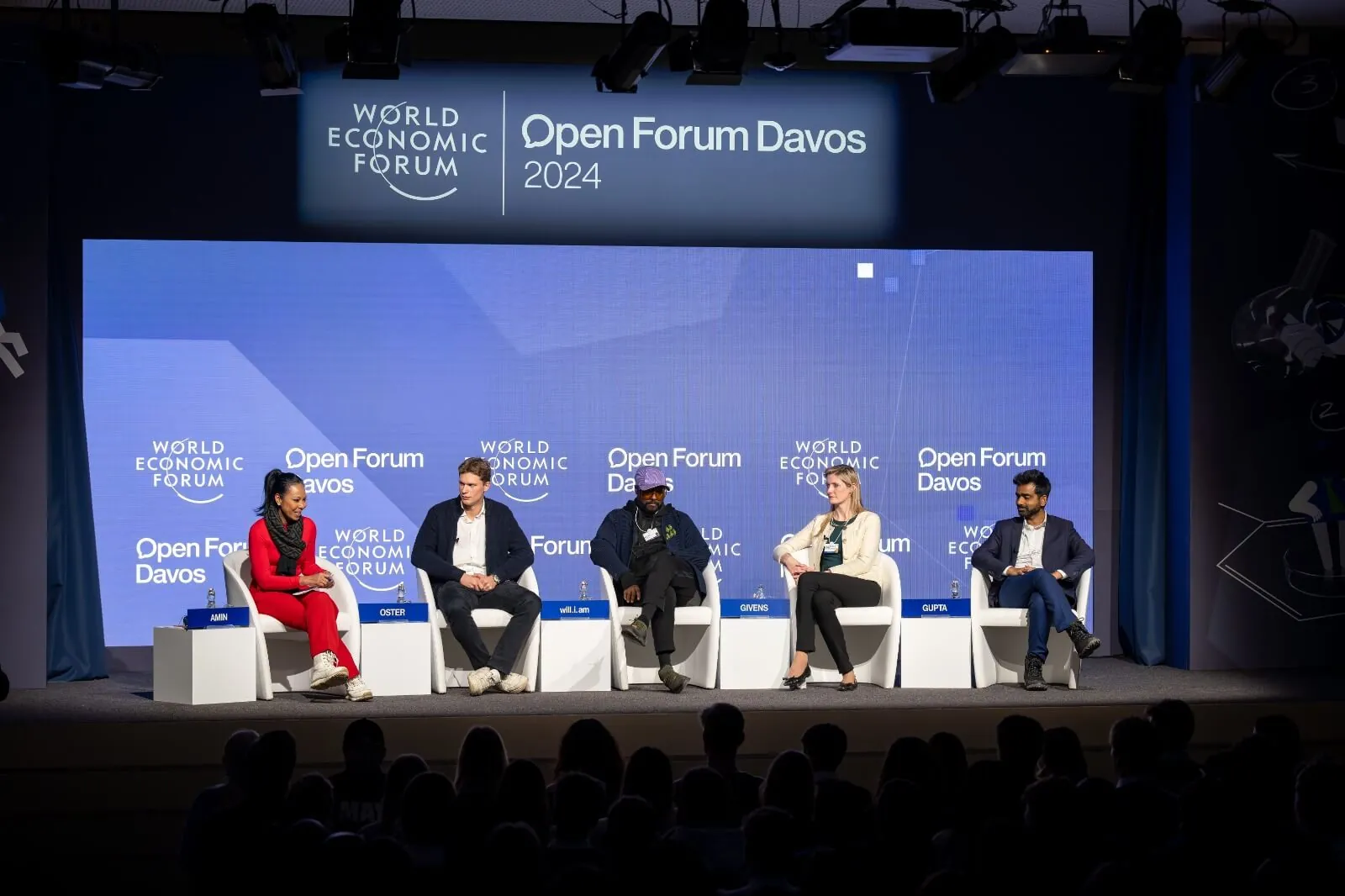
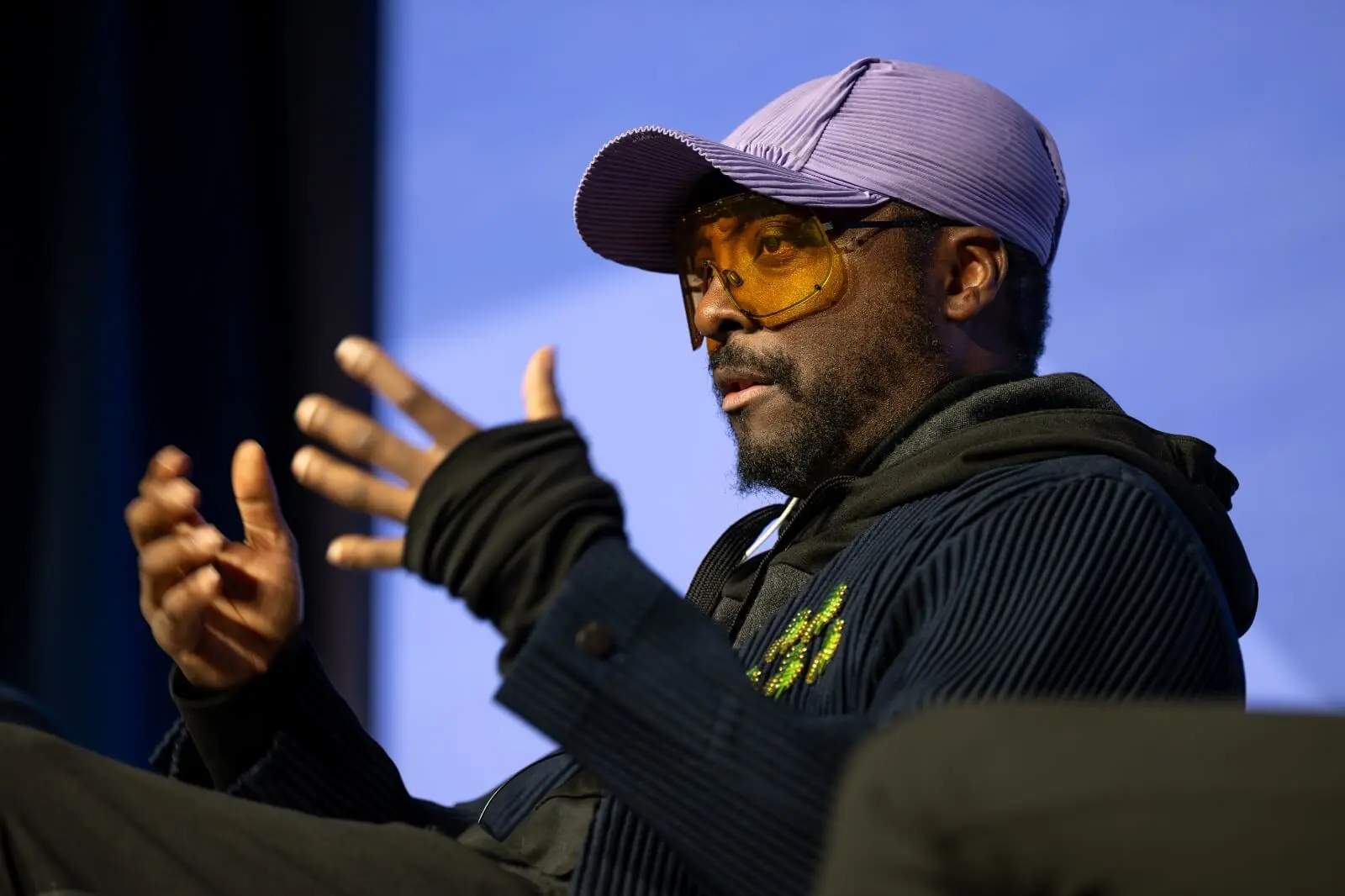
A Primer on AI panel
Discussing the role of tech in climate adaptation with my mentors and former bosses, Vice President Al Gore and Lord Nicholas Stern
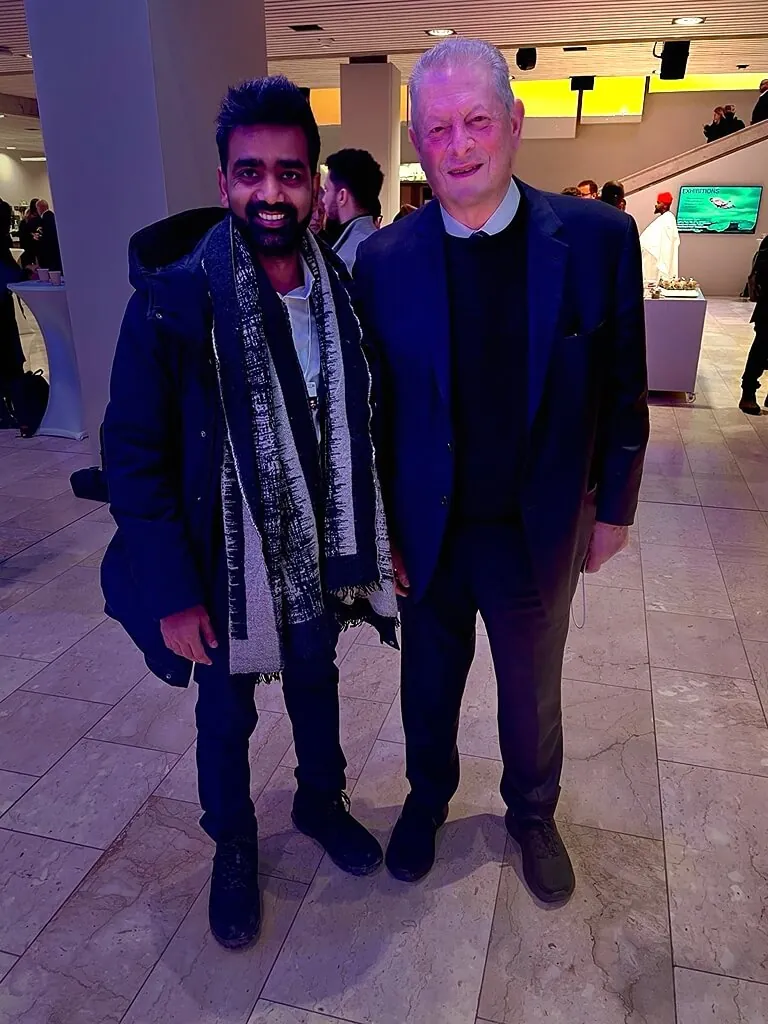
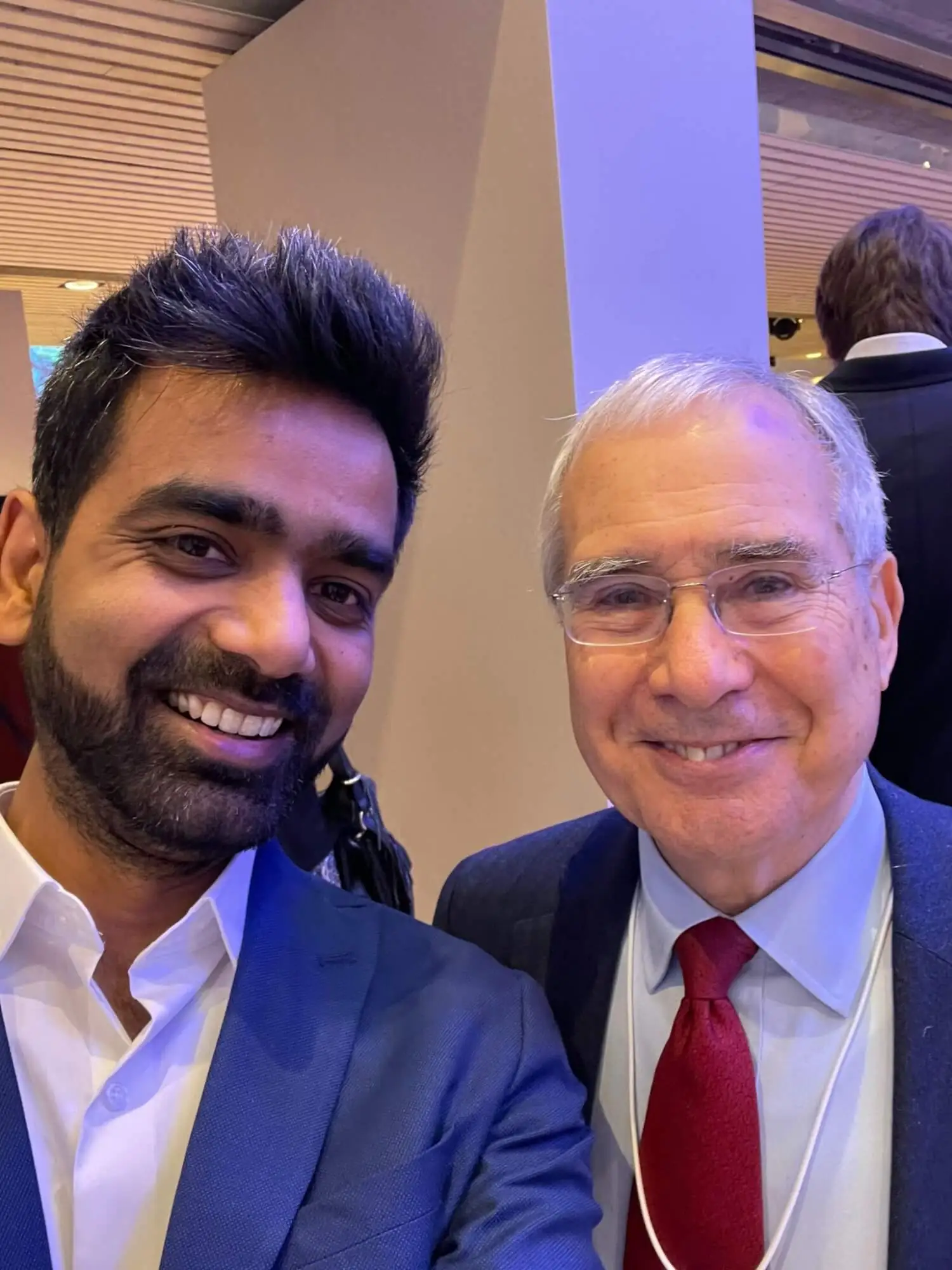
Vice President Al Gore (left) Lord Nicholas Stern (right)
ClimateAi Wine Tasting in collaboration with Goals House
Our Head of Wine, Jasmine Spiess, showed the current impacts of climate change in the attributes of wine and how winemakers are adapting to them.


Wine Tasting at the Goals House and HSBC Dinner
ClimateAi and AI House steer the agenda of risks and opportunities in sustainability for AI
I chaired a session hosted by AI House, joined by Isa Müller-Wegner (Head of Strategy and Business Dev at Swisscom), Andreas Berger (CEO at Swiss Re Corporate Solutions), Thomas McDonald (CSO at Orbital Materials), Thomas Vellacott (CEO at WWF Switzerland) and Remco Van Erp (Co-Founder & CEO at Corintis). Together, we delved into the risks and applications of AI in climate adaptation and mitigation, addressing issues related to water and energy consumption, as well as air quality and food security.
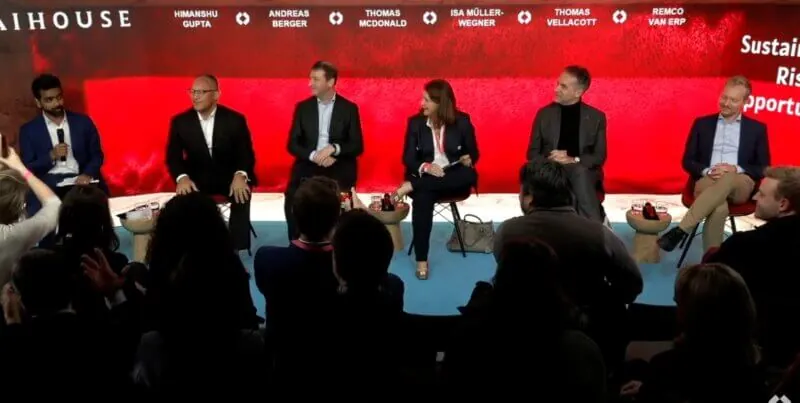
AI & Sustainability – Opportunities and Risks
Contributing to the discussion around climate and technology as an enabler for adaptation
At Arctic Basecamp, I discussed climate tipping points from a financial, academic and agricultural perspective, alongside Ellen Jackowski (CSO at Mastercard) and Stuart Brocklehurst (Deputy Vice-Chancellor at the University of Exeter).
PDIE group also hosted a conversation with industry experts Dr. Shafi Ahmed (CEO, Medical Realities), Dr. Oliver Gottfried (Postdoc at MIT Sloan) and Dr. Michael Kaldasc (CEO & Co-Founder at AIMEDIS), where we elaborated on the role of climate change in policy and healthcare, as well as the role of technology as a solution.
This theme was also present at World Economic Forum engagements, where I dove into the risks and value-add of AI for sustainability and I participated in a roundtable discussion to create a technology report.
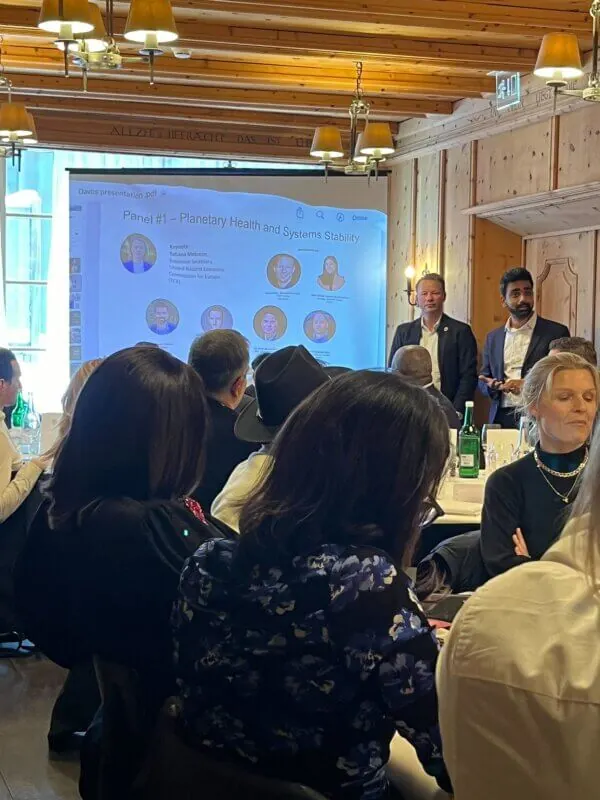
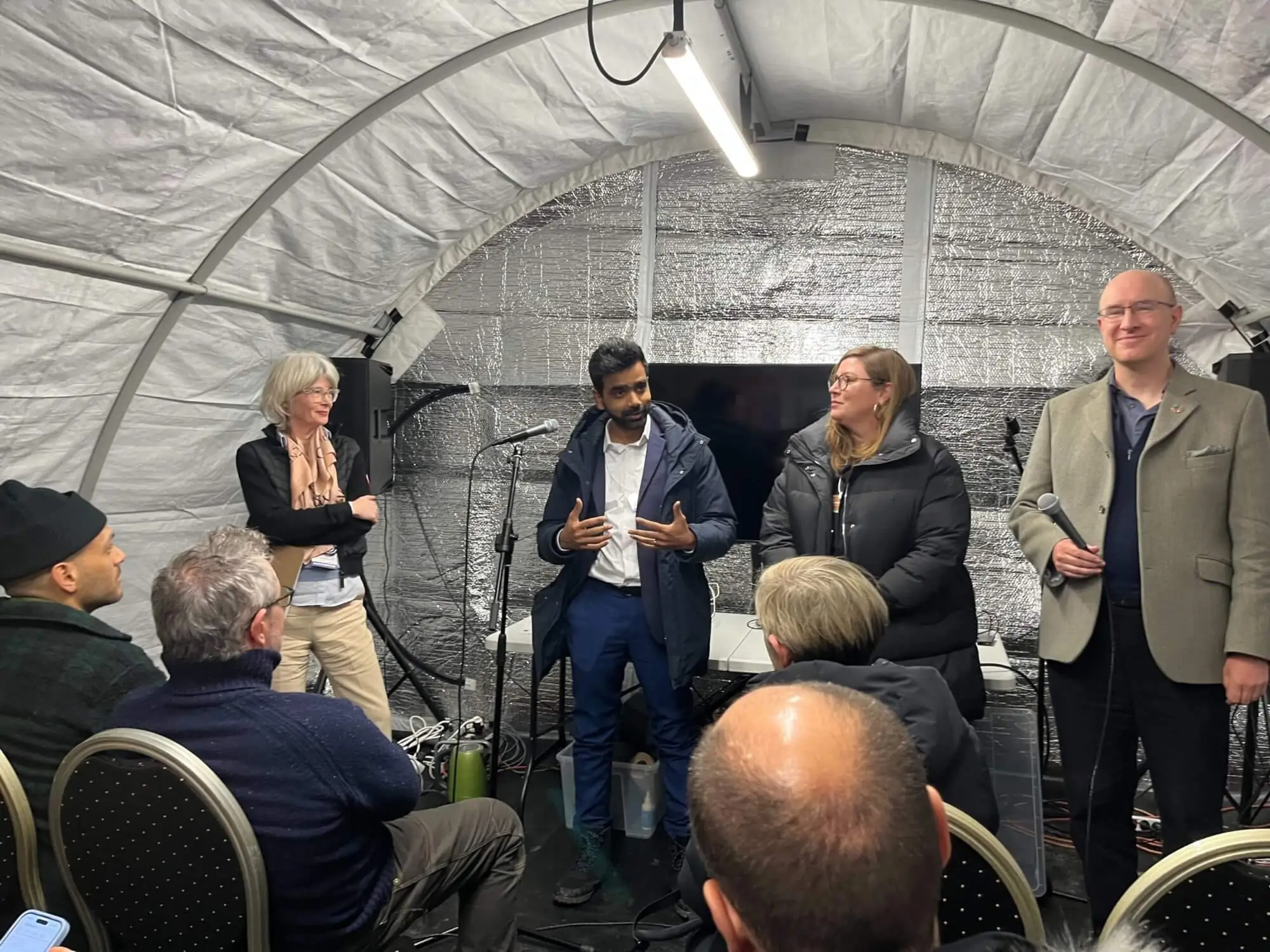
Panel hosted by PDIE Group (left) and Artic Basecamp (right)
Special thanks to Saemoon Yoon, Verena Kuhn, Heen Burdett, Miranda Baker, Federico Ronca from WEF for making our participation in the Tech Pioneer Program very productive. We are at the inflection point of the recognition business as well as the humanitarian opportunity that Climate Adaptation represents.